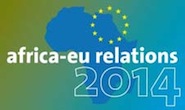The EU’s ability to act on human rights situations deteriorated in 2010 because responsibilities in the post-Lisbon Treaty structures were confused David Nichols of the Human Rights and Democracy Network told members of the European Parliament’s Human Rights Sub-Committee meeting on 10 January. Véronique Arnault, Director for Human Rights and Democracy at the European External Action Service (EAS) agreed that the human rights language in EU declarations had suffered due to “teething problems”, but noted that stronger statements are now being made linking human rights situations and reinforcement of bilateral relations. Arnault informed MEPs on ...
The Afrobarometer is an independent, nonpartisan research project that measures the social, political, and economic atmosphere in Africa. In the ongoing debate on the search of properly “African” measurements of governance for Africa, the Afrobarometer stands out as the most comprehensive source on the actual experiences and perceptions of African citizens on a range of issues including democracy and governance, economic reform, and other critical political and social issues in the continent.
Moving away from ‘best practice’ thinking has profound implications for development policy work argues Brian Levy in this contribution to the World Banks’ Governance and Development for All blog. The craft of policymaking is not simply about delineating the desirable, he says, it is about finding entry points that are both feasible and value-adding. How is this to be done? This blog post introduces a dynamic typology (a trajectories framework) to facilitate thinking about the interactions between governance and development policymaking. The typology comprises five distinct categories – with each characterized by a distinctive set ...
In its regular report the “African Markets Revealed”, (click also here) South Africa’s Standard Bank examines international and local factors that drive markets in 19 African economies. Reviewing the prospects for the continent as a whole, Stephen Bailey-Smith, Standard Bank’s Head of African Research, said that Africa would benefit from expected global growth, despite the risks posed to this by deleveraging of the US consumer market, funding problems in European countries and the tightening of monetary policy in China. However, there are a number of countries facing significant political risk in the coming year which ...
This report from Saferworld critically assesses China’s growing role in Africa and its effect on both the factors that drive conflict and those that promote peace. The report takes a thematic approach, looking at a number of topics: China’s bilateral relations with African states; its military co-operation with their armed forces; the China-Africa arms trade; China’s relations with African regional organisations; its involvement in international co-operation; China’s role in peacekeeping and peacebuilding; and its economic engagements on the continent. The report draws on a wide spectrum of views and perspectives from Chinese, African and international ...
This paper from the North-South Institute describes four conceptualizations of development effectiveness – organizational effectiveness, coherence or coordination, outcomes from aid, and overall development outcomes - and their implications for international aid policy and practice. Some would require developed countries to make greater international commitments to policy coherence. They may entail structural reform at the international level to ensure that institutions of global governance are more representative and coherent and that they enhance partner-country power and influence in decision-making, monitoring, and evaluation processes. It may also mean thinking differently about outcomes and measuring results. It ...
This paper from the Brookings Institution presents new estimates of global poverty and how many poor people there are likely to be in 2015 and argues that within a decade economic growth will cut by two-thris the share of the world’s population living in poverty, the number of countries where more than 1 in 6 people live in poverty could drop from 60 to 35, and 19 countries are poised to eliminate poverty altogether. It notes, however, in 2015 there will still be close to 600 million people living on less than $1.25 a day.
Building a dynamic, interactive community of donors, public and private sector organisations and companies across Africa, the Caribbean and the Pacific, COM4DEV aims at offering the private sector, a virtual environment where information sharing, market analysis, commercial opportunities and networking can be achieved.
Using case studies from sub-Saharan Africa, India, Nepal and the United States among others, the authors of this paper from the Institute of Development Studies, Sussex argue that markets respond to the buying power of the wealthy, with goods flowing to those who can afford them. But by framing scarcity as an inbuilt characteristic of resources, the failure of societies to provide for the needs of the poor and powerless is made out to be ‘natural’ and ‘nature’s fault’. Issues of equity and social justice uncomfortable to those benefiting from the status quo remain unaddressed. ...
The European Parliament’s Human Rights Sub-Committee held an exchange of views on 10 January on the functioning the European External Action Service (EAS) with Véronique Arnault, Director for Human Rights and Democracy at the EAS and David Nichols of the Human Rights and Democracy Network (HRDN). Nichols argued that the EU’s ability to act on human rights situations deteriorated in 2010 because individual responsibilities in the post-Lisbon Treaty structures were confused and he hoped the new institutional set up would rectify this. EU declarations were either not made or the ones that were used more ...

















